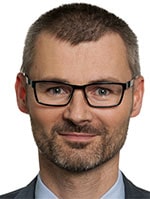How do you and organisations learn?
An impulse for reflection: Individual learning and learning as an organisation.
The topic of learning occupies many people. Lifelong learning is often promoted in publications, challenges in organisations are often discussed and well-intentioned advice on how we should learn in our and as a society can often be found in the media! I would like to understand learning as a topic in a more concrete way. “How do you learn?” and “How do organisations learn?” – I asked Julia Collard, Tim Robert Zander and Tobias Leisgang these two questions independently of each other.
How do you learn, Julia Collard?
Julia Collard¹ is the founder and managing director of the marketing agency Doppel(t)spitze and deals with the topics of brand strategy, social media and personal branding. Learning and sharing knowledge are among her passions.
Julia, how do you learn?
Learning – that was actually not really an issue for me at school. We didn’t talk about learning itself. Content didn’t come naturally to me, but with a reasonable amount of effort I achieved quite acceptable results. However, I did not learn to learn at school. At university: I learned to learn – at least I thought I did. But what I learned was mainly “cramming”. Exam-centred learning. I could do that quite well. But I only really understood much later that learning has to do with understanding, failing, experiencing, grasping, exchanging and communicating. Even learning groups were almost innovative think tanks in my time at university (almost 30 years ago). Lectures were what the name suggests.
Today I study every day and yet I hardly ever think about it.
I read a lot, and what I like: books, daily press, blog articles, posts. I have always had the good fortune to travel a lot – different places of learning are worth their weight in gold for learning progress, especially when it comes to cultures, history and understanding people, which is so important. After 16 years in education, I pretty much know how I want to learn. And how not. Learning does not take place in a space and time bound manner. Above all, it never takes place in lockstep in heterogeneous groups – but that is what our education system far too often assumes. Even in adult education.
Today, when I am self-employed, I can arrange my learning times freely. I learn on a project basis or often because I get stuck on topics, people and opinions (via social media, my biggest store of knowledge). But I don’t just have projects that I cherry-pick. This means that I also have to learn content and methods that I may not have chosen at first glance. Overcoming my limits, prejudices and inner hurdles makes me even more satisfied on some days than reading and learning within my comfort zone. That’s an important realisation in general – similar to sports: overcoming limits is extremely difficult on your own. An external trainer who is strict can help.
And how do organisations learn?
I can imagine that a mix of intrinsically motivated learning and “guidelines” (or better impulses) from outside (from the team, from HR, maybe even randomly from different departments depending on the size of the company) can work well. The mix has to be well dosed and that requires learning time. My gut feeling is that I would be in favour of self-organised learning times, but I know that this requires discipline and courage. Those who have not yet had positive learning experiences may be overwhelmed by it. So here, too, a mixture of a flexible learning time budget and, for example, two team learning days per month.
I like lunch talks, learning cafés and learning snacks. In my view, an essential learning would also be to let the organisation of learning, the tools and methods also become training material.
This would make a “classic team training”
- proposed thematically by one or more colleagues,
- prepared by them and
- moderated by them.
This does not exclude the booking of external offers per se. However, the consumption of learning alone would not be enough for me. A small restriction: For all further training that is available in a standardised form (e.g. foreign language or IT courses), I would use good tools as far as possible and invest the budget thus freed up in “freestyle continuing education”.
For me, learning is the collection of experiences that are memorised through action. In sport, you write training plans and you do it over and over again. Organisations should do the same with and for their employees. Individual and team training. It is the courageous joint exploration of new topics that can, but do not have to, have a directly recognisable connection to the activity. It may still result from innovation and exploration. It pretty much does.
How do you learn, Tim Robert Zander?
Tim Robert Zander² is a young entrepreneur, active in consulting, training and education, and a sparring partner for individual and organisational fitness.
Tim Robert, how do you learn?
Learning is one of the greatest strengths we humans have as members of the species Homo Sapiens as “rational beings”. I am what I learn: the formative situations of my life, approaches, methods, values, people I was allowed to meet, knowledge I was allowed to gather, experiences I made and much more is part of it for me.
I learn best when I enjoy what I am doing. And that starts as a child: learning by playing. At the latest as a young adult, in the role of a tutor, I began to deal explicitly with this wondrous process. A few years later, as a university tutor, I was also able to deal with the basics of didactics, both practically in my courses and theoretically in further training.
There are different types of learners: One likes to read, another to write, yet another likes it audio-supported and the next type needs a visual approach. What I have discovered for myself – and what is generally said to work best – is to teach others something or to learn in exchange with others. This is supposed to be the special strength of humans, but swarm intelligence can also be seen in the animal kingdom.
In summary, I like to learn by preparing, presenting and implementing knowledge. Thinking out loud and getting involved in a topic with others supports this process. Experimenting, testing assumptions and having the opportunity to make “mistakes” is also very useful. Ideally with reference to a specific purpose; be it being able to communicate on holiday or solving a problem for my clientele at work.
And how do organisations learn?
In line with the previous answer, I think we can think of the culture of error more as a culture of experimentation. We don’t want to make mistakes, but we want to disprove, improve or replace inapplicable models as early and as quickly as possible. I find the approach of the start-up culture particularly exciting, which for me arises from a healthy mixture of resilience and agility. Figuratively speaking, organisations and their employees are allowed to leave their comfort zones in order to break with suboptimal routines and gradually approach an optimum.
This takes courage, freedom and an organisational culture that fosters trust and also sees added value in an apparently unsuccessful outcome. Finding out that an approach does not work is also incredibly valuable knowledge. This approach is also said to have led to the invention of the light bulb. It is also found in evolution.
Employees should be encouraged to bring in their own ideas, try them out and then learn from them. In the crisis-ridden times we find ourselves in, a pair of eyes is not enough to find a way through the fog. Networked thinking plays an essential role here, which may be reflected in retrospectives and reviews and then stored organisationally. Ultimately, however, the basic attitude of each individual person and the resulting common mindset is essential.
I don’t want any actionism here, but in Germany in particular I would like to see more courage to take risks with a proper portion of self-responsibility. Tomorrow’s markets are being created today at the latest, and those who do not participate in development will find it difficult to participate. As always, it depends on the people. Finally, I would like to point out the multi-perspective approaches. Diversity and interdisciplinarity should be mentioned here, which can be lived at eye level and in a healthy coordination.
How do you learn, Tobias Leisgang?
Tobias Leisgang³ helps people realise innovations from the idea phase to commercial success. He has been successfully leading global and virtual teams of up to 30 people for over 10 years and enjoys connecting people inside and outside companies.
Tobias, how do you learn?
When I think of learning, I first think of my own school days, my studies and one or two further training courses in the company. So does learning take place at discrete points in our lives? About a year ago, I came across the hashtag #reflectandlearn on LinkedIn. A growing community publicly looks back on the past week through a collection of impulse questions. Since then, I’ve also been posting my reflection most Sundays. And lo and behold, I learn every week. I acquire knowledge through podcasts, articles and books. I learn in joyful moments and phases that make me think. Sometimes there is also a fail of the week. I learn there too – the hard way.
Realisation #1: I learn continuously.
My children went to a Montessori primary school. They talk about sensitive phases of the children. These are phases in which certain subjects are learned effortlessly. But every child has its own rhythm and the sensitive phase for arithmetic does not start exactly at 9:30 when the maths lesson is on the timetable. That’s why the Montessori school has free work. At some point I realised that this principle also applies to me as an adult (or is it the child in the man? 😂). I therefore follow my intrinsic motivation and use my sensitive phases. It can happen that I forget everything around me. Unfortunately, as a scanner personality, I am interested in quite a lot.
Insight #2: I learn best in subjects for which I have an intrinsic interest and in sensitive phases.
“Help me to do it myself.” Another Montessori principle that also fits me. I learned both a passable Latin and English vocabulary at school. English still works great today because 15 years in a US company helped me to do it myself. All right, with some Texans I thought to myself, “Help! I hardly understand a word.” My junior’s Latin homework is more “Bohemian villages” category for me instead of “Gallic villages”. So I only learn when I do it.
Learning by doing also applies to me in innovation methods, presentation skills, moderation, writing, basketball, mountain biking. I could continue the list indefinitely. By the way, I also learn more when I help others to do something I can already do quite well. For example, because I suddenly see ways to do something even more effectively.
Finding #3: I learn best by doing. And when I help others to do it.
And how can organisations learn?
I leave the answers to this question to the experts on the subject. For me, my three personal insights rather raise questions for learning in organisations:
1. continuous learning
Doesn’t this get forgotten far too often in the hectic day-to-day business? Basketball players spend more time on training than on games. In business, most of the time is spent competing. How about a weekly 30-minute #reflectandlearn for the organisation to start with?
2. sensitive phases for learning and intrinsic motivation
Do we allow free learning, or do we try to fit people into curriculums based on roles? What percentage of our working time is free work, i.e. working time in which people follow their intrinsic interest? Does it count as working time to be in the flow while reading a textbook on the weekend?
3. Learning by doing
Do we help people to do something themselves? Or do we just let the professionals do it because time is short again? How tolerant are we of mistakes that happen at the beginning of self-doing?
Notes:
[1] You can find more information about Julia Collard on the website of Doppeltspitze and on LinkedIn. In the t2informatik blog she has published articles together with Sven Schnitzler about eye level, competences in recruiting, error culture and talent management. Here you can find an overview.
[2] You can find more information about Tim Robert Zander on the website of Resilienz Consulting and on LinkedIn. On the t2informatik blog he has published a post about agility and resilience.
[3] You can find more information about Tobias Leisgang on https://www.tobiasleisgang.de/ and on LinkedIn. On the t2informatik blog he has published posts about remote work, decisions by chance, thought experiments, plans and Christmas. Here you can find an overview.
If you like the post or want to discuss it, feel free to share it in your network.

Michael Schenkel
Head of Marketing, t2informatik GmbH
Michael Schenkel has a heart for marketing - so it is fitting that he is responsible for marketing at t2informatik. He likes to blog, likes a change of perspective and tries to offer useful information - e.g. here in the blog - at a time when there is a lot of talk about people's decreasing attention span. If you feel like it, arrange to meet him for a coffee and a piece of cake; he will certainly look forward to it!


